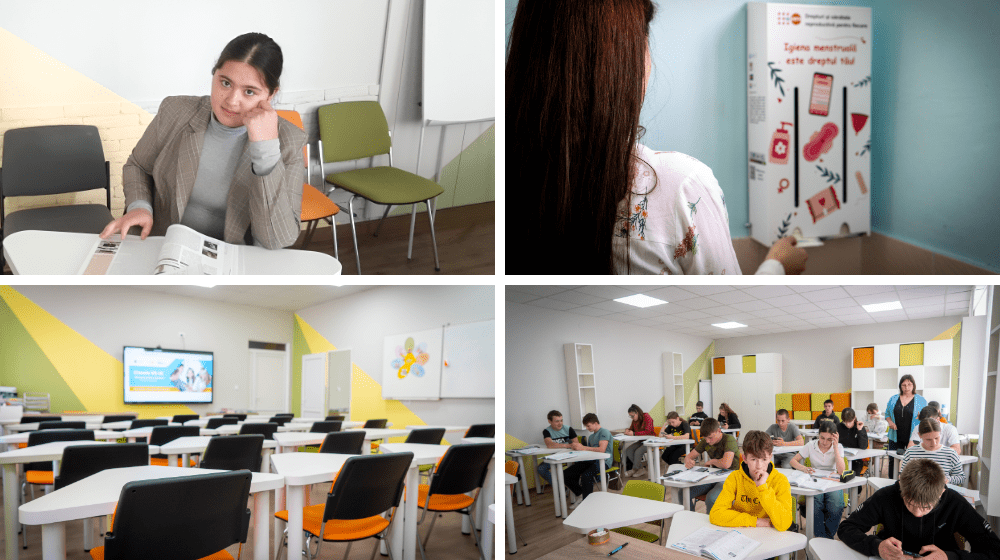"Going to school during your period or paying attention in class while worrying about potential stains that the whole class might notice is a challenge nearly every girl faces. Having easy access to pads in the school bathroom is a real lifesaver." This is the perspective of Daniela and Evelina, ninth-grade students at "Mitropolit Nestor Vornicescu" Theoretical High School in Lozova, Strășeni.
In 2023, their school joined the pilot program “EduLIFE School,” which aims to create a safe and supportive school environment for both girls and boys. Together with three other schools, the high school now enjoys three renovated and equipped spaces (a welcoming classroom, a medical office, and a school psychologist’s office).
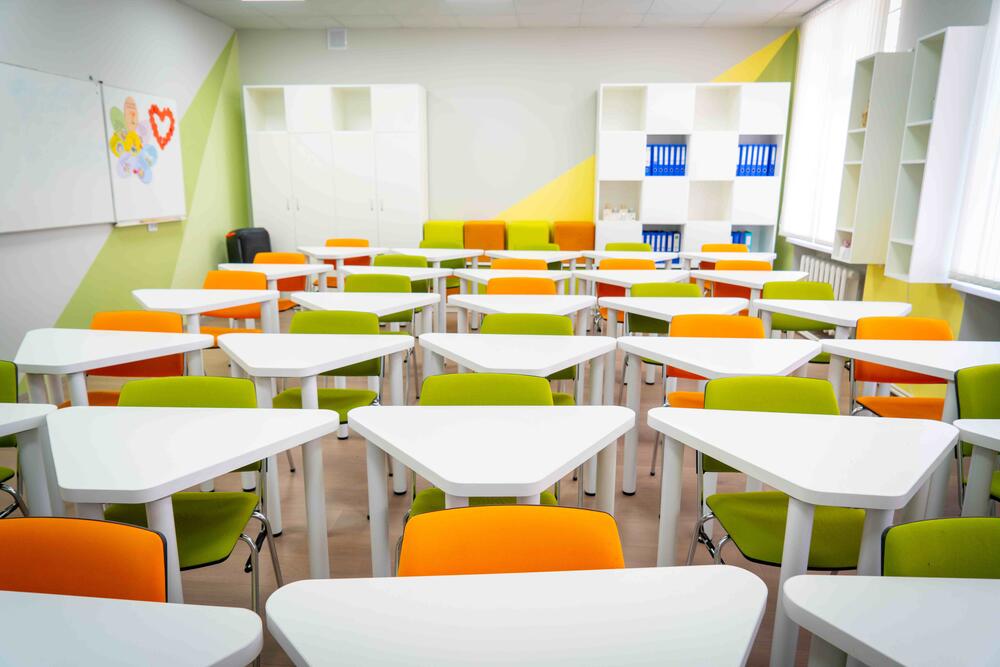
The school’s restrooms have also provided dispensers and free pads for girls. Evelina Galben recalls her surprise when the school psychologist informed girls and boys about the program.
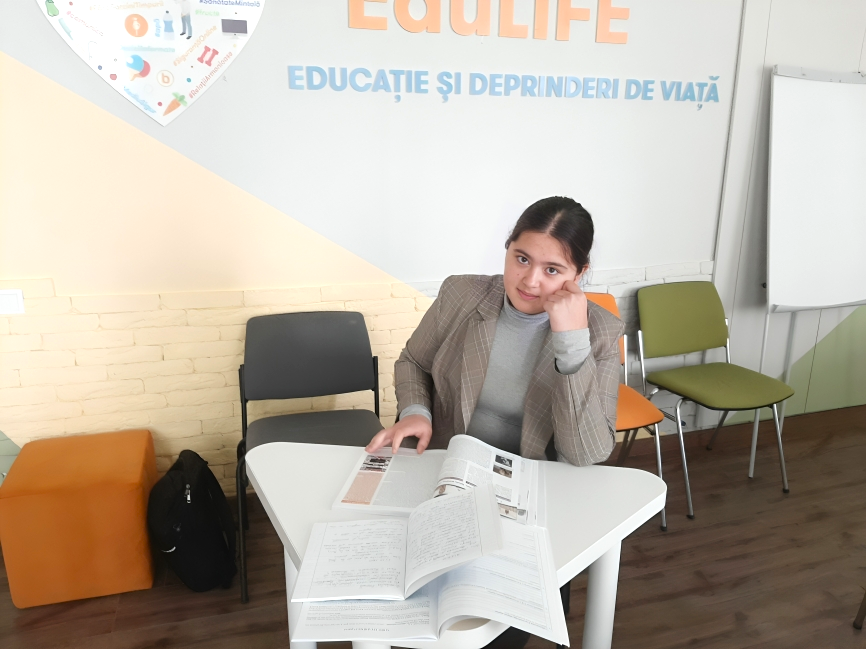
Previously, absenteeism among female students due to menstruation was a frequent issue. "Before these boxes were installed, girls would go home as early as the morning. Especially on days with seven classes, if you don’t have any pads on hand, what can you do? Sometimes you might borrow one from a friend to stay a bit longer, but making it through the whole day is hard. The only option was to go home. Plus, most girls felt embarrassed to ask teachers for help—it was a sensitive topic," Evelina explains.
Her statements are confirmed by an online survey of over 550 girls from the four pilot schools. The data shows that in the past year, over 55% of girls missed school at least once during their period, with 8.2% absent monthly or nearly every month. After only three months of installing the dispensers, four times fewer girls (12.5%) needed to go home.
“It’s a great project and should be available in every school. Previously, students from several classes discussed with their homeroom teacher the idea of having emergency pads in school, but it wasn’t implemented. I know many cases where girls, even my friends, had to go home during their period and ended up with many absences. Now, they feel safe and know that in any critical situation, they have quality products available without needing to ask the nurse or another adult,” says Daniela Stiriu.
In addition to having friendlier spaces, all students have benefited from educational activities about menstrual health and hygiene.
“It’s really helpful when students are informed about age-specific puberty changes, how to handle certain situations, and how to show empathy and respect. Today, girls begin menstruating at a younger age, so they need to be prepared for this step, not frightened by it. This program has helped girls feel supported by the school and adults. Moreover, I’ve noticed that many girls have become more responsible and carry pads in their bags,” says Evelina.
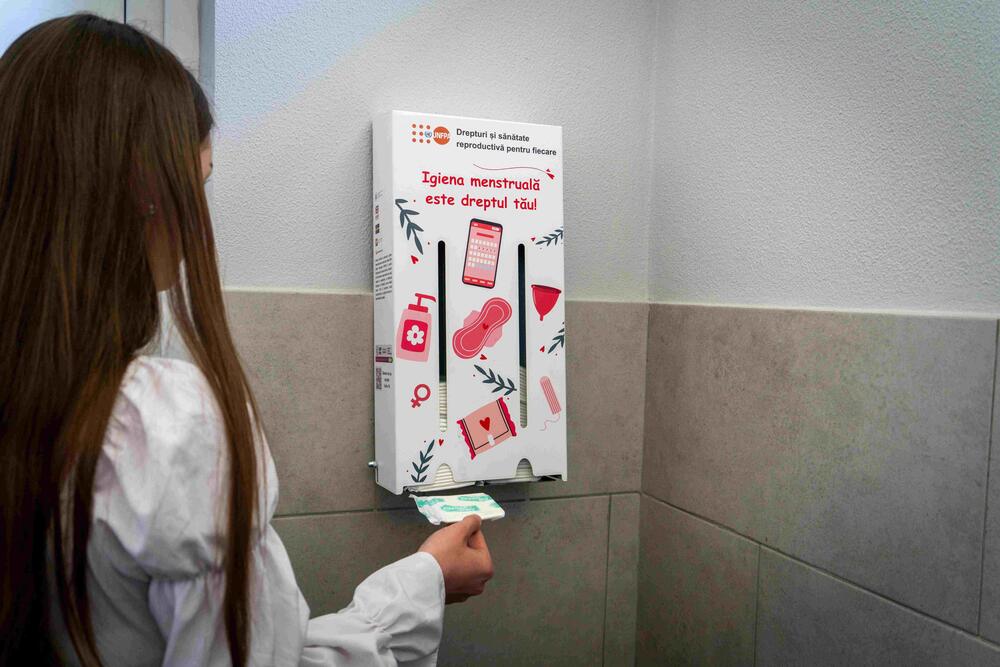
A report based on the four pilot schools indicated that 55.9% of girls feel safe at school after the dispensers were installed. More than half use the pads in emergencies and no longer need to go home. At the same time, nearly 33% of respondents noted that boys are more respectful and avoid making jokes.
“When we were informed about the program, a few boys laughed, but it’s understandable—they hadn’t been told at home about the changes girls go through during adolescence. During training, we were taught how to behave during this period and how to use pads rationally, as they should be used only in emergencies, not daily. Initially, there were some incidents; younger boys were curious about the pads. After repeated explanations, these incidents stopped. It’s important for girls and boys to be informed at school because not everyone discusses these topics with their parents at home,” Daniela adds.
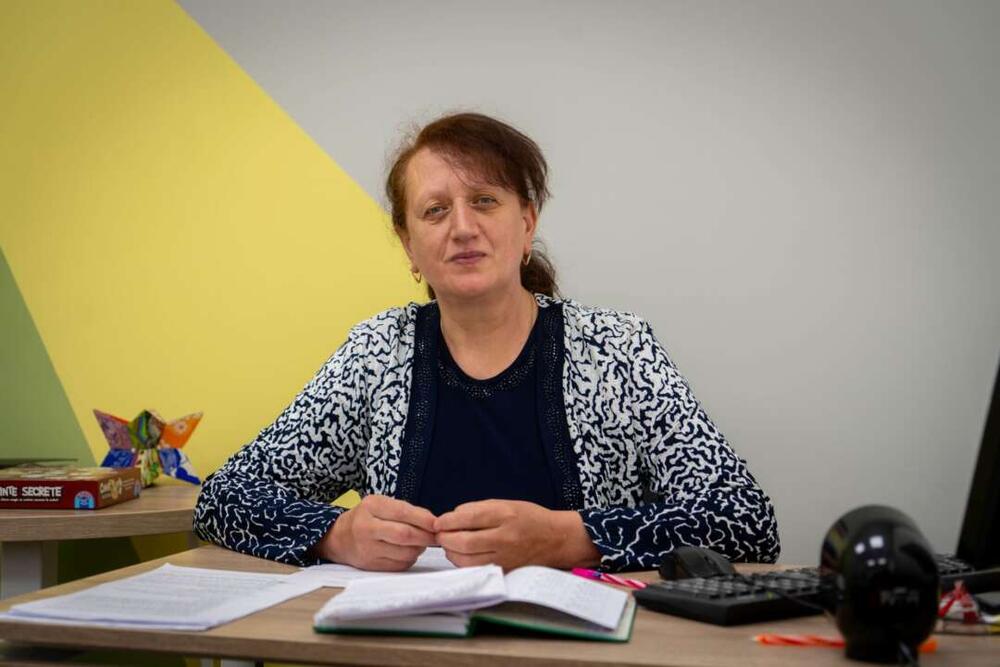
In the 2023-2024 school year, the UNFPA “EduLIFE School” program was piloted in four general education institutions: "Mihail Sadoveanu" Theoretical High School (Hîncești), "Mitropolit Nestor Vornicescu" Theoretical High School (Lozova, Strășeni), "Ion Creangă" Gymnasium (Ermoclia, Ștefan Vodă), and "Ion Creangă" Theoretical High School (Căușeni) with financial support from Sweden and the United Kingdom.
The program is implemented by the United Nations Population Fund (UNFPA) in partnership with the Ministry of Education and Research, the Media Center for Youth, and Suntparinte.md. This year, the "Felicia" Foundation joined the program and will support the initiative.
Nearly 23,000 girls from over 130 general education institutions across the country will have access to menstrual hygiene products in the 2024-2025 school year.
On the International Day of the Girl, we emphasize once again that access to proper restroom facilities and menstrual hygiene products is not a luxury. It is a necessity and a fundamental right. Together with development partners, we advocate for every girl in Moldova to feel safe at school, develop harmoniously, and fully realize her potential.

